The 5 Healthiest Coffees to Start Off Your Day: A Clinical Product Review
Do you ever hop into bed at night and find yourself already excited for that first cup of coffee in the morning? You know that feeling when your senses come alive the moment you press the on button or plunge the press. The blissful anticipation of the comforting and familiar warm hug of your hands around your favorite mug as spirals of fragrant steam dance and twirl into your nostrils. That brief moment that is entirely yours to bask in before you start your busy day. If you’re part of the 64% of Americans who drink at least one cup of coffee a day, you know that no day is complete or can even truly begin without a cup of your favorite roast.
Our relationship with coffee is personal. Every the coffee-drinker has their favorite brand, bean, and brew-style. Some of us are even self-proclaimed coffee connoisseurs, with a refined palate and a self-issued degree in coffee-growing regions, production methods, and artisanal apparatuses for brewing the best cup of java. And despite the mixed information out there as to whether coffee is beneficial or detrimental to our health, most of us are and will remain loyal drinkers.

Despite our devoted love affair with coffee, some beans and brands are coated in these harmful agents that can inflict both short-term and long-term health issues. This may come as a shock, but the coffee you are drinking every day might contain mycotoxins that are partially or entirely responsible for the acute or chronic health problems you are currently experiencing.
If you are going to drink, eat, or use something every single day, wouldn’t it be wise to make sure that what you’re putting in or on your body is high-quality and free of toxins?
What are Mycotoxins?

Several hundred different mycotoxins have been identified, but the most commonly observed mycotoxins that present a concern to human health and livestock include aflatoxins, ochratoxin A, patulin, fumonisins, zearalenone, and nivalenol/deoxynivalenol.”
As is characteristic of mold in general, mycotoxins thrive in warm and damp environments. Mycotoxin contamination can occur at various stages of the production, packaging, and storage of foods like cereals, grains, dried fruits, nuts, and coffee beans. It should also be noted that if livestock consumes mycotoxins via their feed, they can be transferred on to us when we eat the contaminated animal products, including dairy.
Mycotoxins are prevalent, though, and according to the Food and Agriculture Organization, 25% of the world’s agriculture is contaminated. Exposure to regular high amounts of mycotoxins, say by way of the coffee you drink every day, can produce noticeable, long-lasting, and potentially fatal conditions and diseases.
What Symptoms and Diseases are Linked to Mycotoxicosis?
Since mycotoxins are toxic, mycotoxicosis is essentially mycotoxin poisoning. Mycotoxins will affect individuals differently since factors like age, gender, genetics, vitamin deficiencies, malnutrition, substance abuse, and other diseases and conditions impact how mycotoxins present themselves in the body.
Studies on different mycotoxins, including aflatoxins and ochratoxin A, which are the two most commonly found in coffee beans, have been linked to:
- Nausea
- Vomiting
- Gastrointestinal disturbances
- Headaches
- Skin irritations
- Drowsiness
- Dizziness
- Respiratory problems
- DNA damage
- Oxidative stress
- Mitochondria impairment
- Brain fog
- Dizziness
- Hair loss
- Chronic fatigue
- Liver damage
- Liver cancer
- Kidney cancer
- Esophageal cancer
- Tachycardia
- Renal disease
- Alzheimer’s disease
- Parkinson’s disease
- Striatal dopamine depletion
Yikes!
So How Can You Reduce Your Risk of Mycotoxin Exposure?
This is a tricky one, but not an impossible feat!
Since mycotoxins generally contaminate coffee beans and other food products during the production and packaging processes, as a consumer, your best bet is to seek out brands and companies that value high-quality. Don’t cheap out on something you consume every day. Quality should override quantity here. You should also know who you are buying from and the practices and safety precautions they take to ensure the end product is safe for your use.
Since mycotoxins thrive in warm and damp environments, the way your coffee is stored is also fundamental. You should keep your coffee in an opaque and airtight container at room temperature. According to the National Coffee Association, to maximize freshness, flavor (and avoid mold), you should buy your coffee in small batches and consume whatever you buy within two weeks. It is also a beneficial habit to check your coffee beans for visible signs of mold.
The New York Center for Innovative Medicine conducted its own study of several coffee brands in the United States to determine which ones were safe and which ones were toxic. “
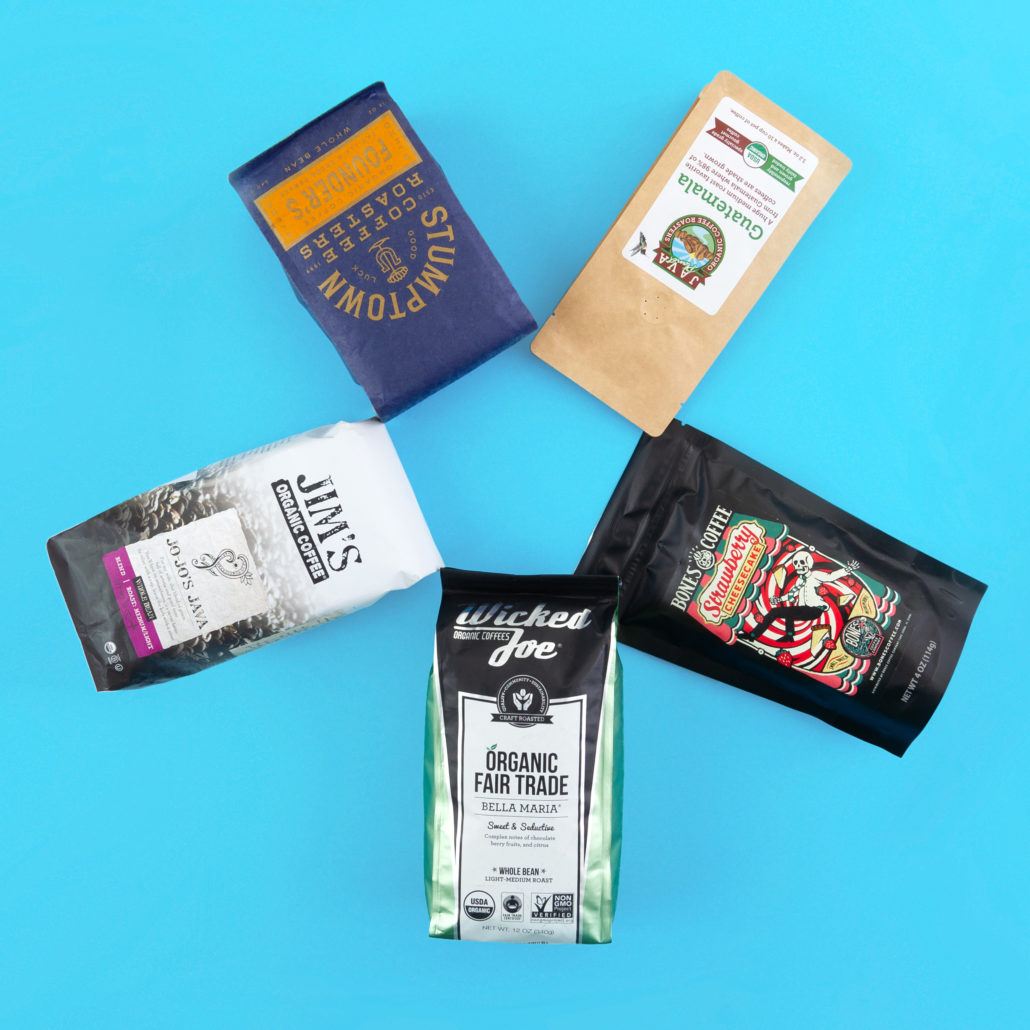
Probably one of the biggest problems with mycotoxins and coffee beans from a consumer standpoint is finding out which brands are reputable and which ones sell coffee that is laden with mycotoxins. This information isn’t easy to find, if at all. But, fortunately, The New York Center for Innovative Medicine conducted its own study of several coffee brands in the United States to determine which ones were safe and which ones were toxic.
Here They Are: The 5 Healthiest Coffees to Safely Start Off Your Day
1. Stumptown Founders Blend
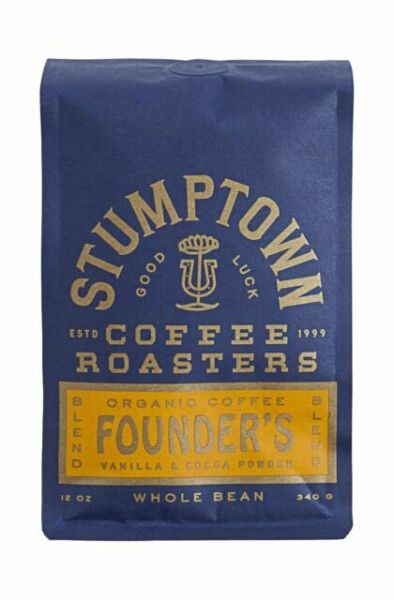
Cost: $14.66
Mycotoxin Level: Safe
Stumptown Coffee Roasters is based in Portland, Oregon and have been roasting sustainably sourced coffee from Central and South America since 1999. Their Founder’s Blend has been noted for having a sweet, clean taste that combines hints of praline, cocoa powder, and raisin. In 2018, they achieved B-Corp status for their commitment to the environment and the producers of the coffee beans that they source for their various blends.
Stumptown Coffee
Average Cost: $1.22/ounce
2. Java Planet Sampler
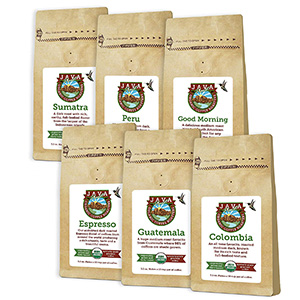
Cost: $29.99
Mycotoxin Level: Safe
Java Planet Organic Coffee Roasters is a family-owned business that has been sourcing, roasting, and selling 100% certified organic coffee since 2009. They are strong advocates of all-natural and organic coffee growing and producing practices. All of the beans that Java Planet sources are grown free of harmful chemicals. They are also a Fair Trade certified company that supports better wages and working conditions for the families involved in the growing, picking, and initial stages of coffee production in Costa Rica, Columbia, Guatemala, Peru, Brazil, Sumatra, and Papua New Guinea.
Their sampler pack includes six 3.2-ounce bags of some of their top coffees. Innovative Medicine tested their entire sampler pack and found all six types to be void of high levels of mycotoxins.
Java Planet
Average Cost: $1.56/ounce
3. Jim’s Jo-Jo Java
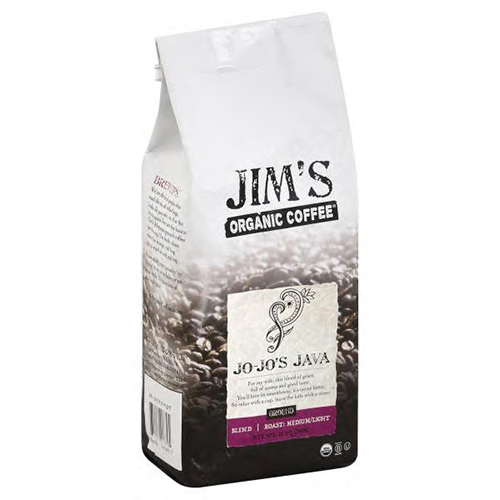
Average Cost: $8.36
Mycotoxin Level: Safe
In 1992, Jim’s Organic Coffee became the world’s first all-organic coffee roaster. Since then, they have been sourcing and roasting premium coffee from some of the top coffee-growing regions in the world. While quality is a huge priority, so is the environment, and Jim’s Organic Coffee has remained dedicated to itand those involved in the growing and production processes. This small but thriving company is B-Corp and Fair Trade certified.
Innovative Medicine found Jim’s Jo-Jo Java to be safe from harmful mycotoxins.
Jim's Organic Coffee
Average Cost: $0.97/ounce
4. Bones Coffee Flavor Sampler Pack
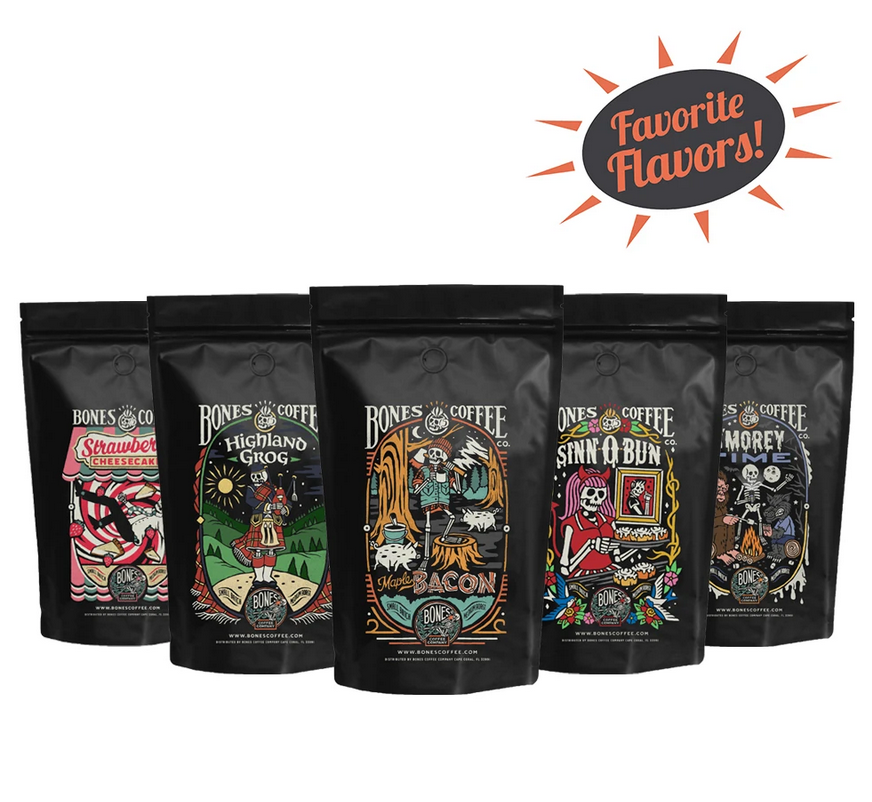
Average Cost: $34.99
Mycotoxin Level: Safe
Bones Coffee Company is a small-batch coffee roaster dedicated to providing their customers with the freshest coffee beans for a coffee experience unmatched by any other. Their beans are roasted to-order and delivered to you in a resealable bag to ensure peak freshness. What’s unique about Bones Coffee is their wildly unique coffee flavors. In the flavor sampler pack, you will have the chance to try their maple bacon, strawberry cheesecake, S’morey Time, Highland Gorg, and Sinn-O-Bun coffee.
Innovative Medicine ran all five flavors through their mycotoxin analysis, and none tested positive for high levels of mycotoxins.
Bones Coffee
Average Cost: $2.92/ounce
5. Wicked Joe
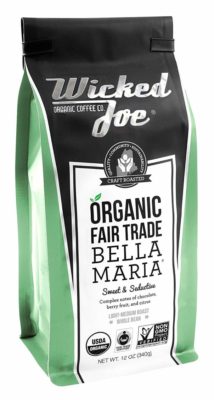
Average Cost: $9.99
Mycotoxin Level: Safe
Wicked Joe Coffee is an all-organic, Fair Trade and B-Corp certified, and non-GMO coffee roaster that was founded in 2003 by Bob and Carmen Garver. This family-owned coffee company is committed to producing exceptional coffee using sustainable practices. They source their beans from Sumatra, Guatemala, and Costa Rica, and ensure that the families and land where their beans are being grown and picked are well-taken care of.
Their Maria Bella coffee was deemed safe for consumption by Innovative Medicine following their mycotoxin testing.
Wiked Joe Coffee
Average Cost: $0.83/ounce
Know What’s in Your Cup
At Innovative Medicine, we genuinely believe that knowledge is power, and with that knowledge comes the potential for better health. In a perfect world, you would be able to trust that what you purchase from any producer to drink, eat, or put on your body is safe. Unfortunately, this is not always the case and as a consumer, you have been burdened with the responsibility to dig deeper and investigate what you decide to put on and in you since your health and wellness are at stake.
This burden shouldn’t exist, though, which is why we have taken it upon ourselves at Innovative Medicine to continually research, test, and provide you with the latest and scientifically supported information about everything from probiotics and Botox to magnetic clay baths and coffee. Your health, our health, and the health of our families and communities is what drives us.
And should you choose to start your day with a cup of coffee, we want it to be the highest quality product available, and fortunately there are some out there that are!
Disclaimer: The statements made in this article have not been evaluated by the Food and Drug Administration. Any products or treatments mentioned are not intended to diagnose, treat, cure, or prevent any disease. Please consult a licensed medical practitioner for medical advice.
At Innovative Medicine, we believe in transparency. We want you to know that we may participate in affiliate advertising programs pertaining to products mentioned herein.
See how we can help you restore complete health of body, mind & spirit.
Join our mailing list and receive exclusive offers + information!
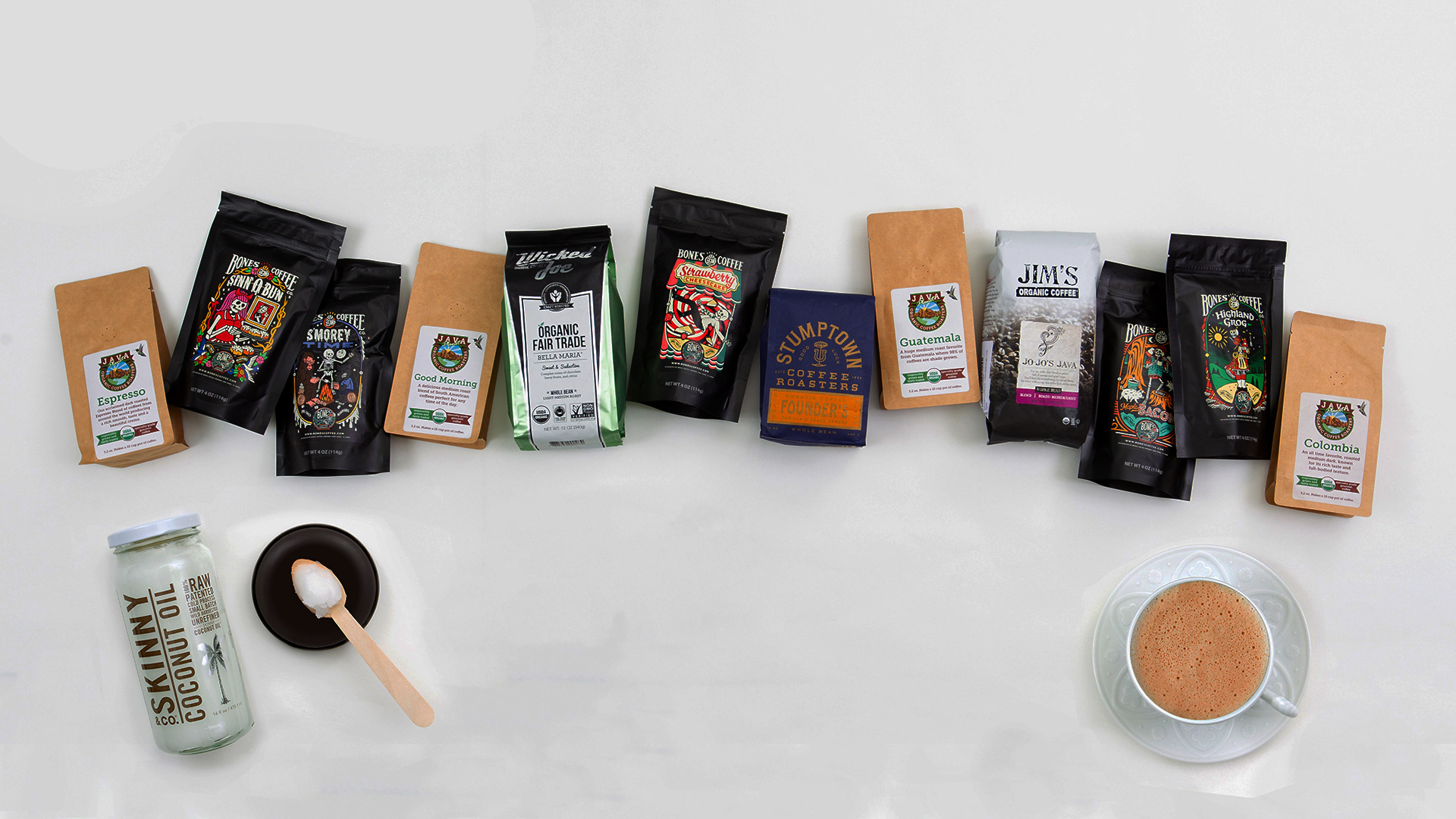
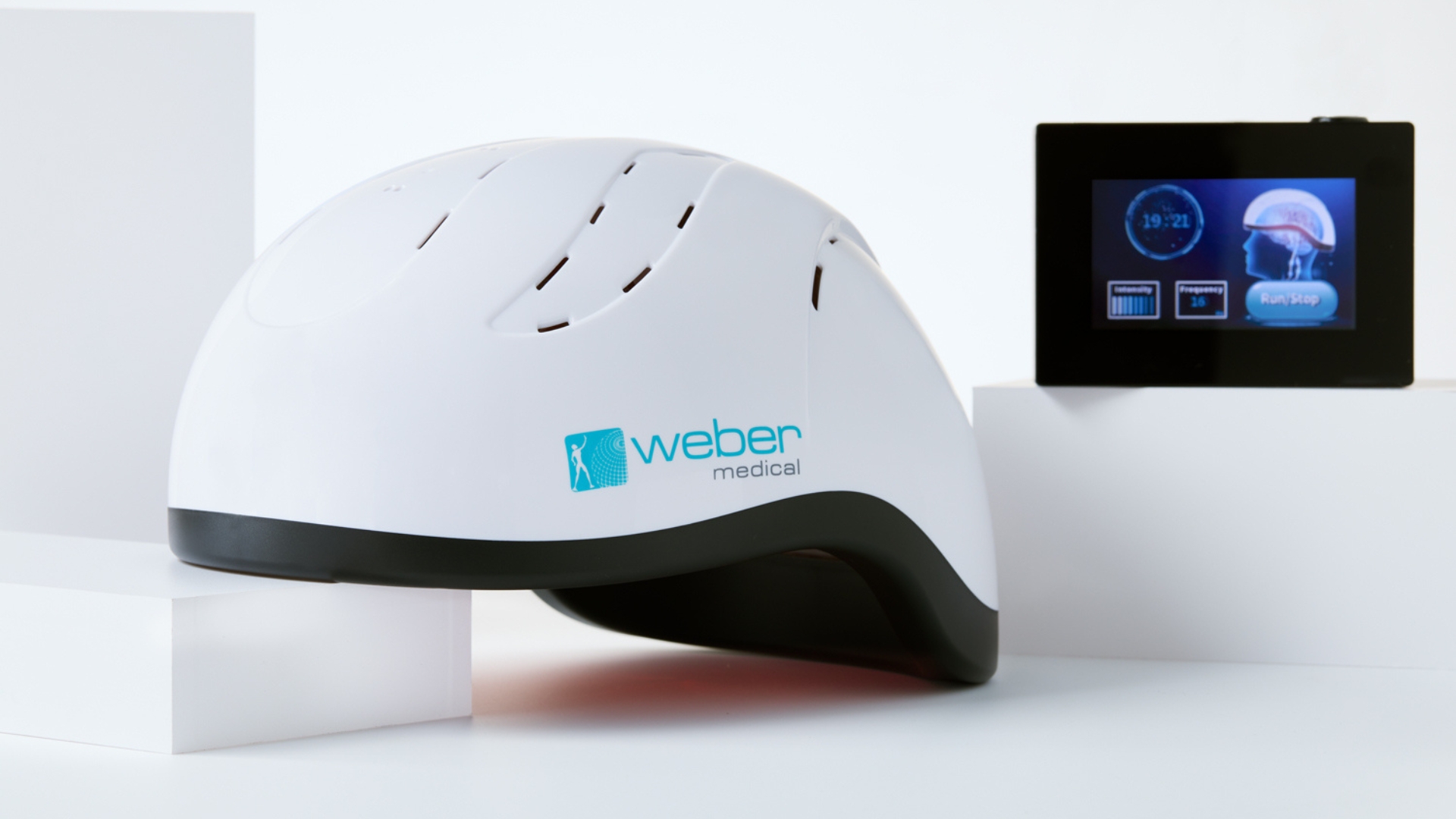
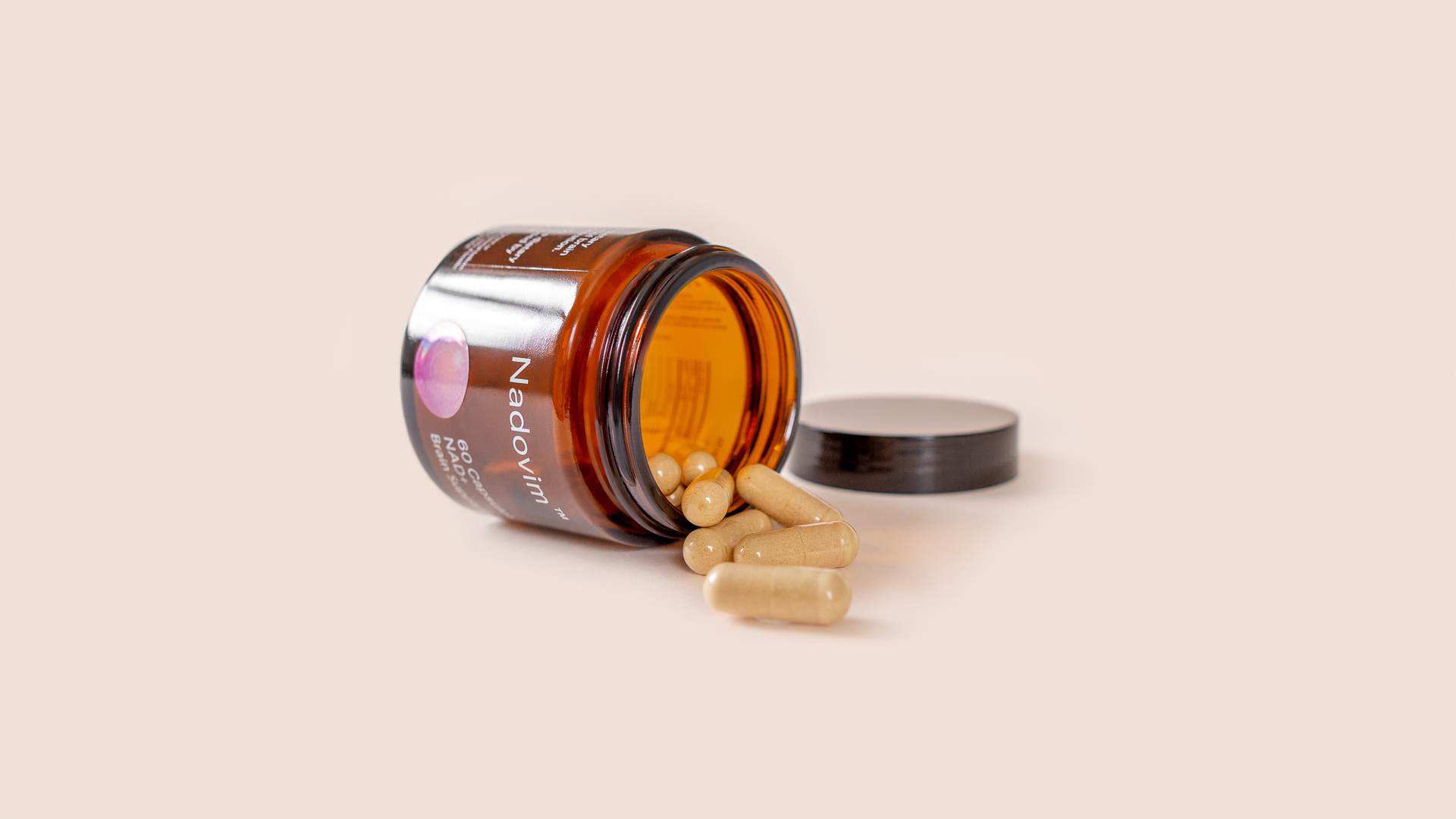
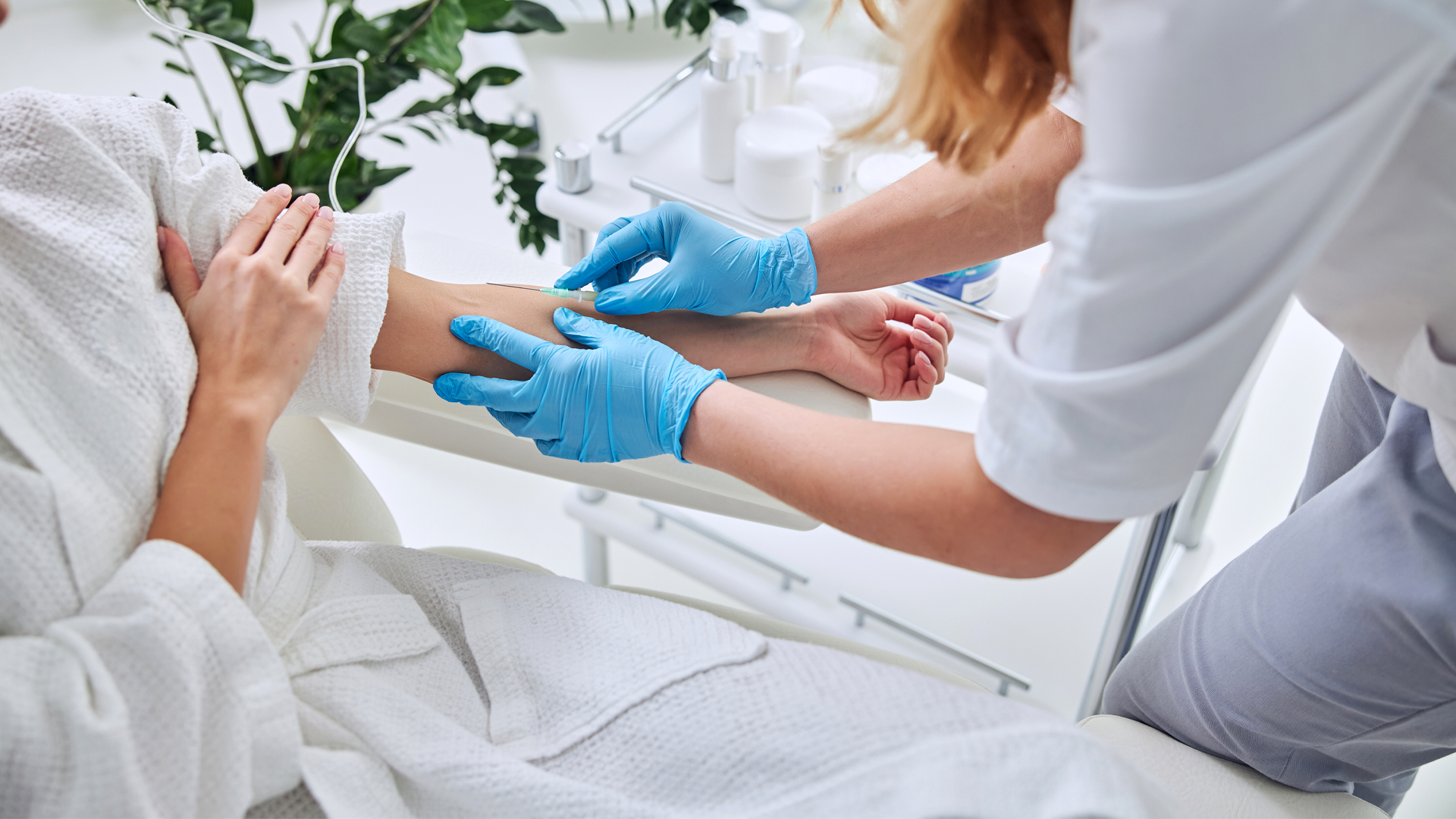
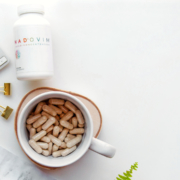

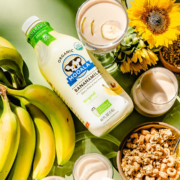
Leave a Reply
Want to join the discussion?Feel free to contribute!